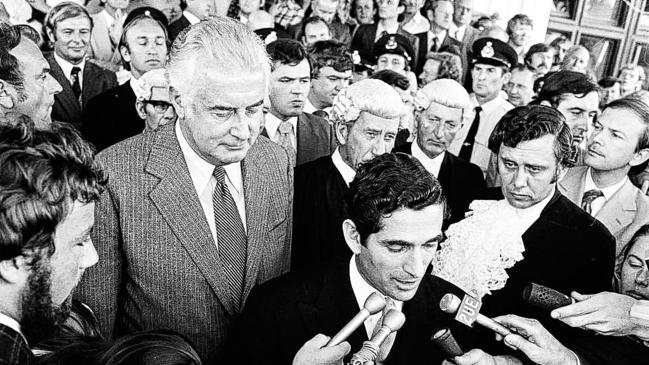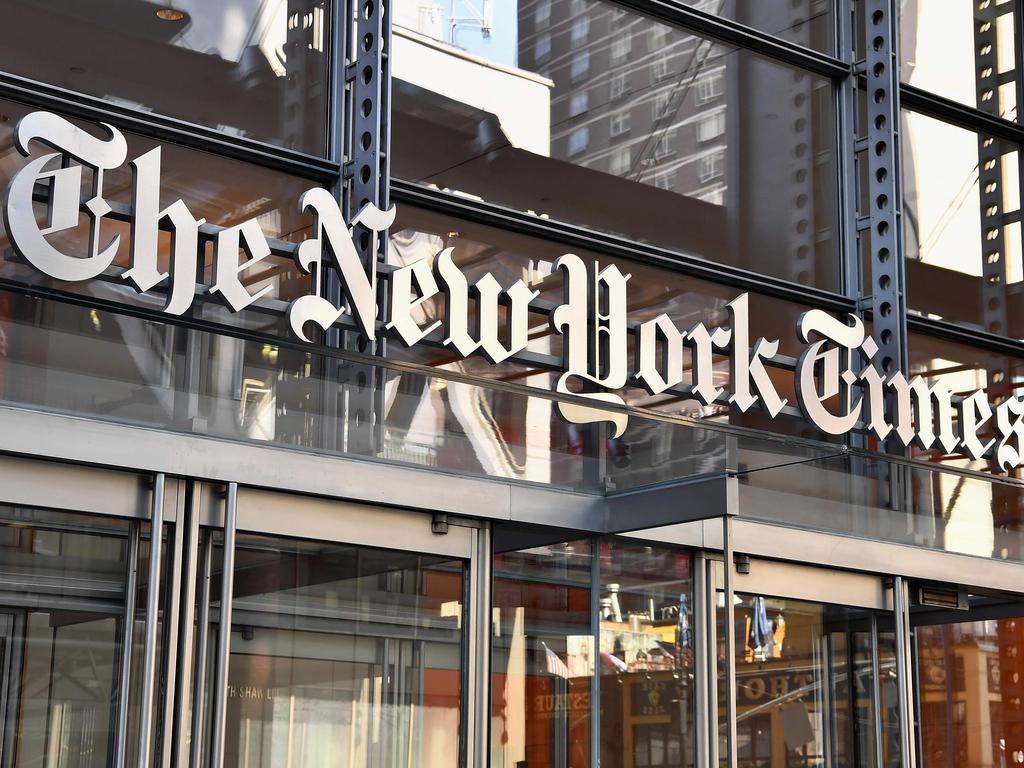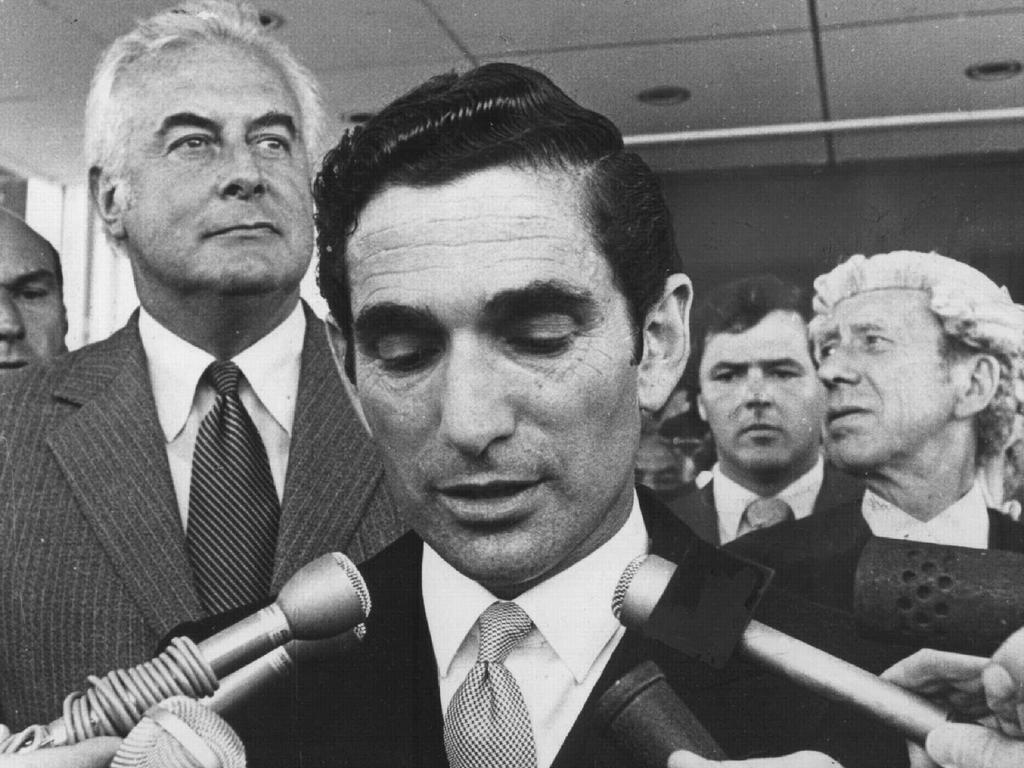
While it is useful to pop stars and journalists in marketing their work, in political discourse it inevitably skews left and privileges the feelings of the unknowing young: it is to politics what the thumbs- down was to the Colosseum.
The spectacular Tuesday resignation letter by Bari Weiss, an opinion writer and editor for The New York Times, accused the “Grey Lady’’ of effectively allowing Twitter to edit the paper.
It’s similar to the criticism this paper made of former ABC managing director Mark Scott when he announced Q&A would feature viewer tweets across the bottom of the screen. Weiss’s resignation outlined her reasons for joining the paper from The Wall Street Journal in 2016. “I was hired with the goal of bringing in voices that would otherwise not appear … centrists, conservatives …”.
This was part of a process designed to help the paper better understand the nation after it misread the 2016 election of Donald Trump. It was the right idea at the time, but history shows the Times got bogged down in the three-year, Democrat-devised Russiagate hoax.
And rather than Trump suppressing free speech, as critics claimed he would, the left, and left-wing journalists, decided they would do exactly that.
Matt Taibbi, ex-Rolling Stone political writer and former Moscow-based magazine publisher, has written brilliantly about the loss of control over young journalists by editors at major US media organisations.
This has allowed newsrooms to forget the rules of their craft: they forsake balance for what they believe is their duty to rid the country of Trump.
It is profoundly anti-democratic and anti-journalism.

The rise of newsroom “snowflakes”, who feel unsafe if certain opinions are published, came to a head when Weiss’s immediate boss, former New York Times opinion page editor James Bennet, resigned in early June over the internal outcry from young staffers about the publication of a piece by Arkansas Republican Senator Tom Cotton on Black Lives Matter protests.
Explaining how Twitter helped persuade the Times that increasing clicks – the measure of economic success in online media – required the paper to embrace cancel culture, Bari dissected the problem in a devastating fourth paragraph: “But the lessons that ought to have followed the election – lessons about the importance of understanding other Americans, the necessity of resisting tribalism, and the centrality of the free exchange of ideas to a democratic society – have not been learned. Instead, a new consensus has emerged in the press, but perhaps especially at this paper: that truth isn’t a process of collective discovery, but an orthodoxy already known to an enlightened few whose job is to inform everyone else.”
To an Australian media audience, this left-wing tribalism sounds just like the ABC or Channel 10’s The Project handing down truths on climate change or Australian racism. Factual debate, nuance, discussion and balance are banished in favour of preaching.
The release last week by the National Archives of the letters of former governor-general Sir John Kerr showed exactly the sort of media “groupthink” Weiss was criticising.
Most prominent was the devotion of various ABC presenters to historian Jenny Hocking, the left-wing academic who fought a series of court battles to obtain the release of the papers hoping to prove the Queen was involved in the 1975 dismissal of Labor prime minister Gough Whitlam.
They did the opposite, proving what readers of books by Kerr, Whitlam and this newspaper’s Paul Kelly and Troy Bramston have always known. Kerr deliberately avoided telling Buckingham Palace of his decision in advance to protect the Queen.
Many pro-republic journalists writing about the letters seem as misguided about the law, the Constitution and our system of government as Hocking is, but they get Twitter applause despite being wrong.


The Queen is Queen of Australia. When senior journalists such as Quentin Dempster, Katharine Murphy, David Speers and Tony Walker write as if communication between Kerr and the Queen through the Queen’s adviser, Sir Martin Charteris, was improper, they display a profound ignorance of the role of governor-general.
Every governor-general since Federation has regularly written to the Queen or King advising the monarch of political events here. The governor-general’s role is to be the monarch’s representative: communication with the monarch is analogous to the regular audience Britain’s prime ministers have with the Queen.
The idea that the Queen acted improperly in 1975 was never even entertained by Whitlam, who said: “(It) is a fact that the Queen’s representative in Australia had kept the Queen in the same total ignorance of his actions as he had the prime minister of Australia.”

As constitutional law professor Anne Twomey wrote in the Channel 9 newspapers on Thursday, the letters show Whitlam rang Charteris to explain he had been sacked and supply had passed.
During the call – before parliament was dissolved – he said parliament had supported a motion of no-confidence in opposition leader Malcolm Fraser and confidence in Whitlam. He was, in effect, asking Sir Martin to speak to Kerr about reinstating him. Whitlam was acknowledging this is how our system works.
The villain in Whitlam’s mind, and in the mind of the Labor Party until recently, was Sir John. The idea the Queen was an active participant in the dismissal is every bit as mad as the old conspiracy theory the CIA initiated Whitlam’s sacking.
Yet, last Wednesday, Dempster, a former staff-elected ABC board member, tweeted: “None so blind. Paul Kelly @australian exonerates the Queen in Whitlam dismissal’’. Later, he tweeted: “Your Majesty I have lost confidence in you as Queen of Australia”.
None so blind. Paul Kelly @australian exonerates the Queen in Whitlam dismissal. #palaceletters expose Queen’s complicity. At no time did HM through Charteris tell Kerr to warn Whitlam. GG then ignored PM’s advice for 1/2 Senate election to resolve Supply deadlock. Duplicitous. pic.twitter.com/WLR4yZZbu3
— Quentin Dempster (@QuentinDempster) July 14, 2020
Kelly is treated as some sort of conservative. This is the ignorance of Twitter. The author of four books on the Dismissal, Kelly famously left his role as political correspondent of this paper over the issue and soon after left the paper.
Back at The Australian during the republic referendum in 1999, he championed the case for change. He told The Guardian on Wednesday he still opposed Kerr’s dismissal of Whitlam.
But as he wrote on Page 3 of the paper on Thursday: “Inept anti-monarchists have royally lost the plot”. “ … It (the republican movement) seems to have lost any understanding of how and why it was defeated in the 1999 referendum … Stirring up hostility towards the crown is the deepest and oldest republican sentiment. It has “never worked … and never will …”.
A quick check of Australian Republican Movement leader Peter FitzSimons’ Twitter feed will confirm Kelly’s assessment.
Ironically, the one person the left media tribe last week seemed to let off the hook was Whitlam’s successor, Fraser, who was so eager for the top job he blocked supply in the Senate.
Ever the opportunist, Fraser used his time after politics to remake himself as a caring lefty, and the left seems to have bought it.
Journalists who want a republic can’t hoodwink voters with false facts and feelings best left to social media.








This newspaper’s weekend edition more than a decade ago branded social media, and particularly Twitter, the “dunny door graffiti” of journalism.